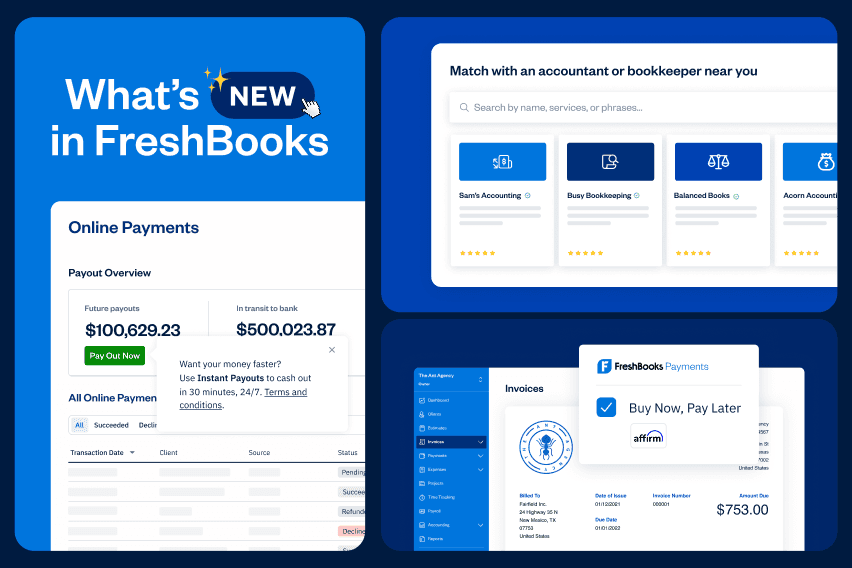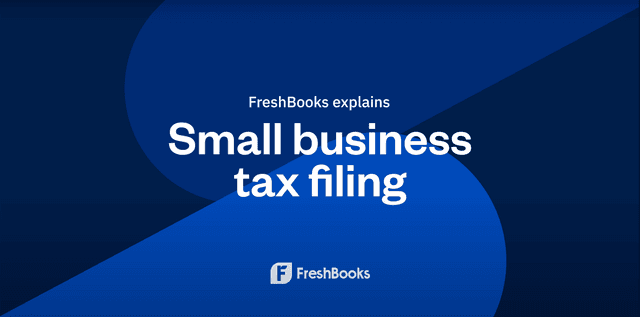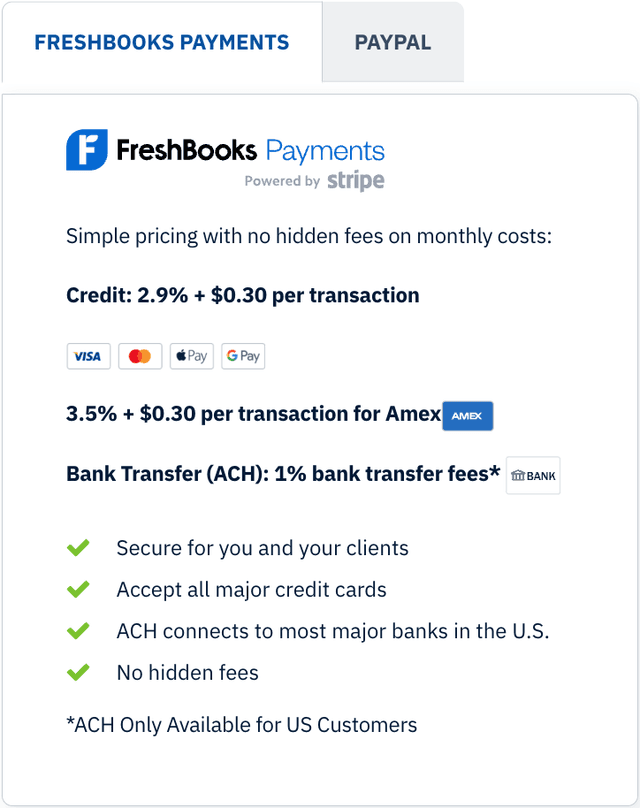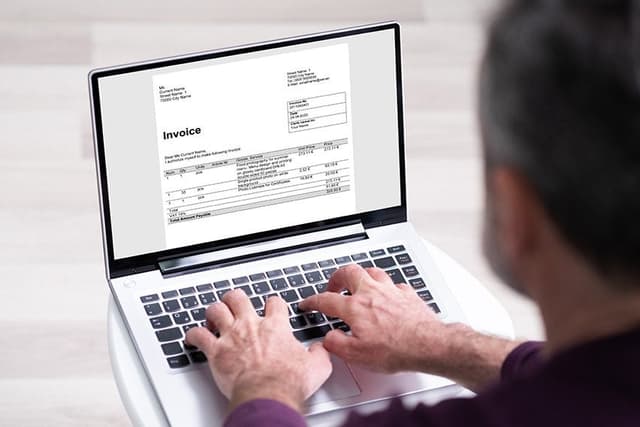Start 2026 with huge savings + organized books 🎉 Get 60% off for 3 months. Buy now & save
60% Off for 3 Months Buy now & save
Recent posts

How to Protect Your Small Business From Holiday Fraud (Without Slowing Down Your Workflow)
January 12, 2026
Payments
What’s New in FreshBooks: Faster Payouts, Smarter Payroll, and More Ways to Get Paid
December 1, 2025
Feature news
Introducing: Easily Manage Your Bills With Accounts Payable
November 10, 2025
Business Management
How to Write a Business Proposal That Wins New Clients
December 23, 2025
Estimates and Proposals
Explore other resources
Customer Stories
Our blog is here to help! With actionable insights into all aspects of running a small business, FreshBooks helps you thrive.

Why Values-Based Accountant Nicole Believes FreshBooks Truly Cares About Customers
January 7, 2026
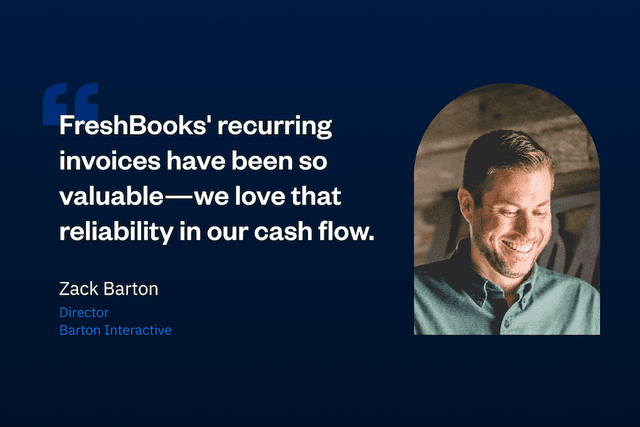
How FreshBooks Helps This Creative Agency Prevent Cash Flow Challenges
November 1, 2025
Guides
Our blog is here to help! With actionable insights into all aspects of running a small business, FreshBooks helps you thrive.
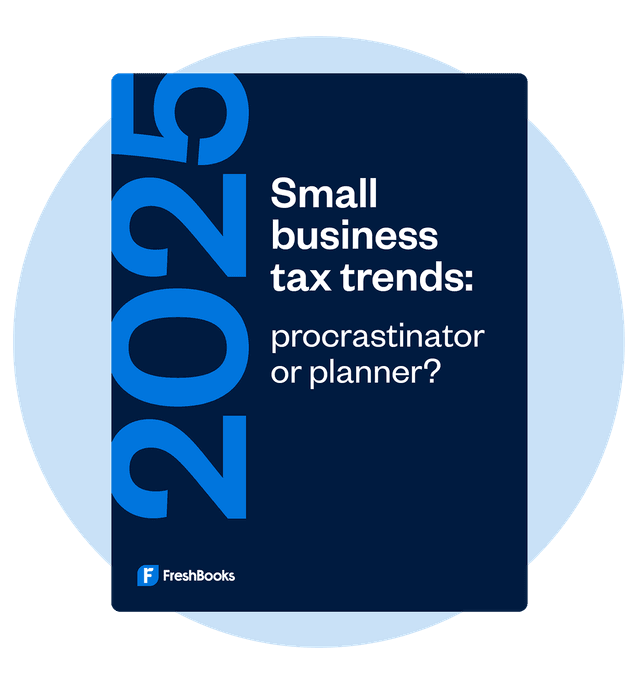
2025 Small Business Tax Trends
January 12, 2026
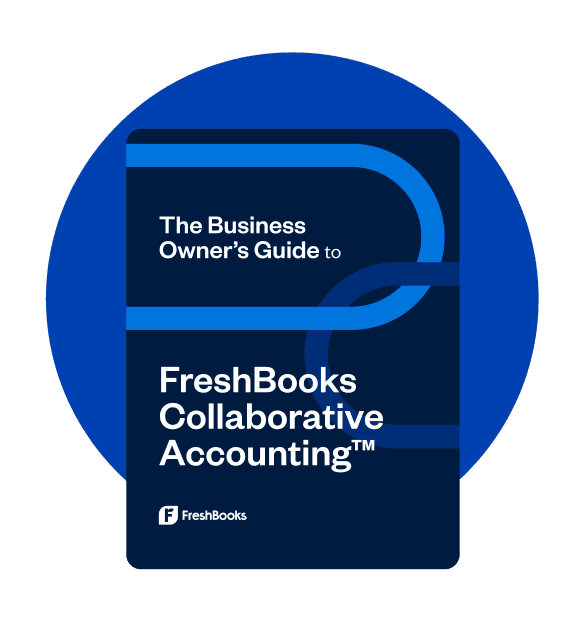
The Business Owner’s Guide to Collaborative Accounting™
January 12, 2026
Sign up for the FreshBooks newsletter






